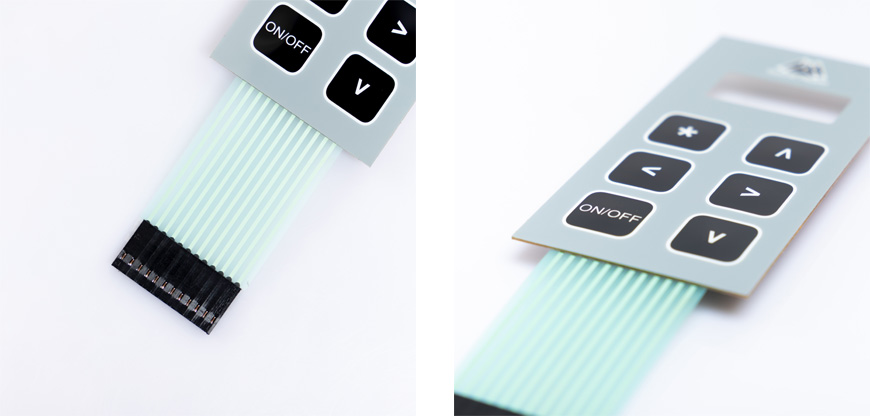In today's fast-paced world, where technology plays a vital role in our daily lives, the choice of keyboards can significantly impact our productivity and comfort. Membrane switches and mechanical keyboards are two popular options, each with its own set of advantages and disadvantages. In this article, we will dive deep into the world of keyboards, comparing membrane switches and mechanical keyboards to help you make an informed decision.

Membrane switches are the most common type of keyboards found in everyday electronics, including laptops and standard desktop keyboards. They are characterized by a simple and cost-effective design. These keyboards consist of three layers: a top membrane layer, a conductive trace layer, and a bottom membrane layer. When a key is pressed, the top and bottom membranes come into contact, registering the keypress.
Affordability: Membrane switch keyboards are budget-friendly and readily available in the market, making them an attractive choice for many.
Silent Typing: Membrane switches are known for their quiet operation, which can be a plus in quieter environments.
Slim Profile: These keyboards are often slim and lightweight, making them suitable for portable devices.
Limited Durability: Membrane switches have a finite lifespan and may wear out over time with heavy use.
Lack of Tactile Feedback: Some users prefer the tactile feedback of mechanical keyboards, which membrane switches may lack.
Mechanical keyboards, on the other hand, are known for their mechanical switches beneath each key. These switches are individual components, offering a more tactile and audible typing experience. Mechanical keyboards have gained popularity among gamers and typists who seek precision and comfort.
Durability: Mechanical keyboards are built to last, with mechanical switches rated for tens of millions of keypresses.
Tactile Feedback: The distinct tactile feedback and audible click of mechanical switches can enhance typing accuracy and satisfaction.
Customization: Mechanical keyboards often offer customizable key switches, allowing users to choose the typing experience that suits them best.
Cost: Mechanical keyboards are generally more expensive than membrane switch keyboards due to their construction and quality.
Noise: The audible click of mechanical switches can be disruptive in quiet environments, making them less ideal for shared spaces.
Bulkier Design: Mechanical keyboards tend to be bulkier and heavier than membrane switch counterparts.
The choice between membrane switches and mechanical keyboards ultimately depends on your preferences and needs. If you're on a budget and value a quiet typing experience, a membrane switch keyboard might be the right choice. However, if you prioritize durability, tactile feedback, and customization, a mechanical keyboard could be more suitable.
In the world of keyboards, the battle between membrane switches and mechanical keyboards continues. Both have their unique characteristics, and the ideal choice varies from person to person. It's essential to consider your typing preferences, budget, and where you'll be using the keyboard before making your decision.
Are membrane switch keyboards suitable for gaming?
Membrane switch keyboards can be used for gaming, but they may not provide the same tactile feedback and durability as mechanical keyboards.
Do all mechanical keyboards produce a loud clicking sound?
No, not all mechanical keyboards produce a loud clicking sound. Some mechanical switches are designed to be quieter, offering a more subdued typing experience.
Can I replace the keycaps on a mechanical keyboard?
Yes, many mechanical keyboards allow users to replace keycaps easily, enabling customization of the keyboard's appearance and feel.
Are there any wireless mechanical keyboards available?
Yes, there are wireless mechanical keyboards on the market that offer the convenience of a cable-free setup.
Do mechanical keyboards require more force to press keys than membrane switches?
The force required to press keys on a mechanical keyboard can vary depending on the type of switch. Some switches require more force, while others are lighter and easier to press.